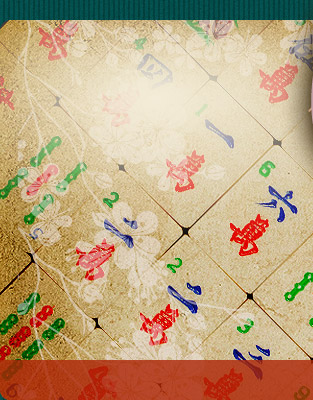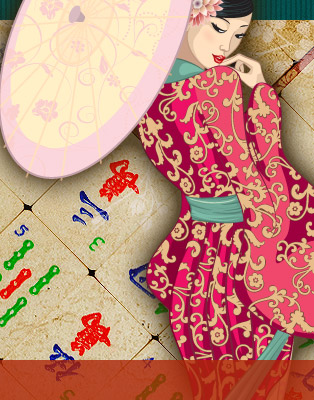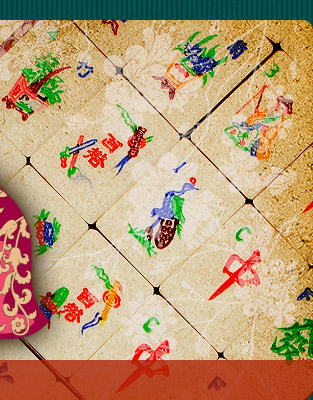Mahjiang
Mahjiang is a four-player game that originated from China. It requires skill, intelligence, calculation and, like other gambling games, a certain amount of luck.
Though rules differ depending on regional variations, the overall aim of the game is to amass a greater score than the other players.
Generally, to get a higher score, a player must be able to call "Mahjiang" by building complete sets. The three basic sets are as follows:
| SET | DESCRIPTION | EXAMPLES |
|---|---|---|
| Pong or Pung | A set of 3 identical tiles (similar to a three of a kind in poker but without the kickers). |  ; ; ; ;  ; ;  . . |
| Kong | A set of 4 identical tiles (similar to a four of a kind in poker but without the kickers). |  ; ;  . . |
| Chow | A run of 3 tiles in the same suit (similar to a straight in poker but with only three tiles). |  ; ;  ; ;  ; ;  . . |
The closest Western analogue to Mahjiang is perhaps the card game Gin Rummy. Both Mahjiang and Gin Rummy involve selecting or discarding tiles or cards to form groups or sets of similar suits.
Mahjiang (Májiàng) or Máquè is Mandarin for the popular Chinese game of Mahjong ( ). In Cantonese (
). In Cantonese ( ), the game is called màhjeung or màhjeuk. In English, the game is spelled as mahjongg, majong, mahjiang, majiang, mah-jong, mah-jongg or just M-J. Joseph Park Babcock trademarked the spelling "Mah-Jongg" in 1920.
), the game is called màhjeung or màhjeuk. In English, the game is spelled as mahjongg, majong, mahjiang, majiang, mah-jong, mah-jongg or just M-J. Joseph Park Babcock trademarked the spelling "Mah-Jongg" in 1920.
The Chinese word  literally means "hemp general". While the Cantonese alternate writing,
literally means "hemp general". While the Cantonese alternate writing,  , literally means "sparrow". In Japanese,
, literally means "sparrow". In Japanese,  means "hemp sparrow" and is pronounced mā-jan.
means "hemp sparrow" and is pronounced mā-jan.



